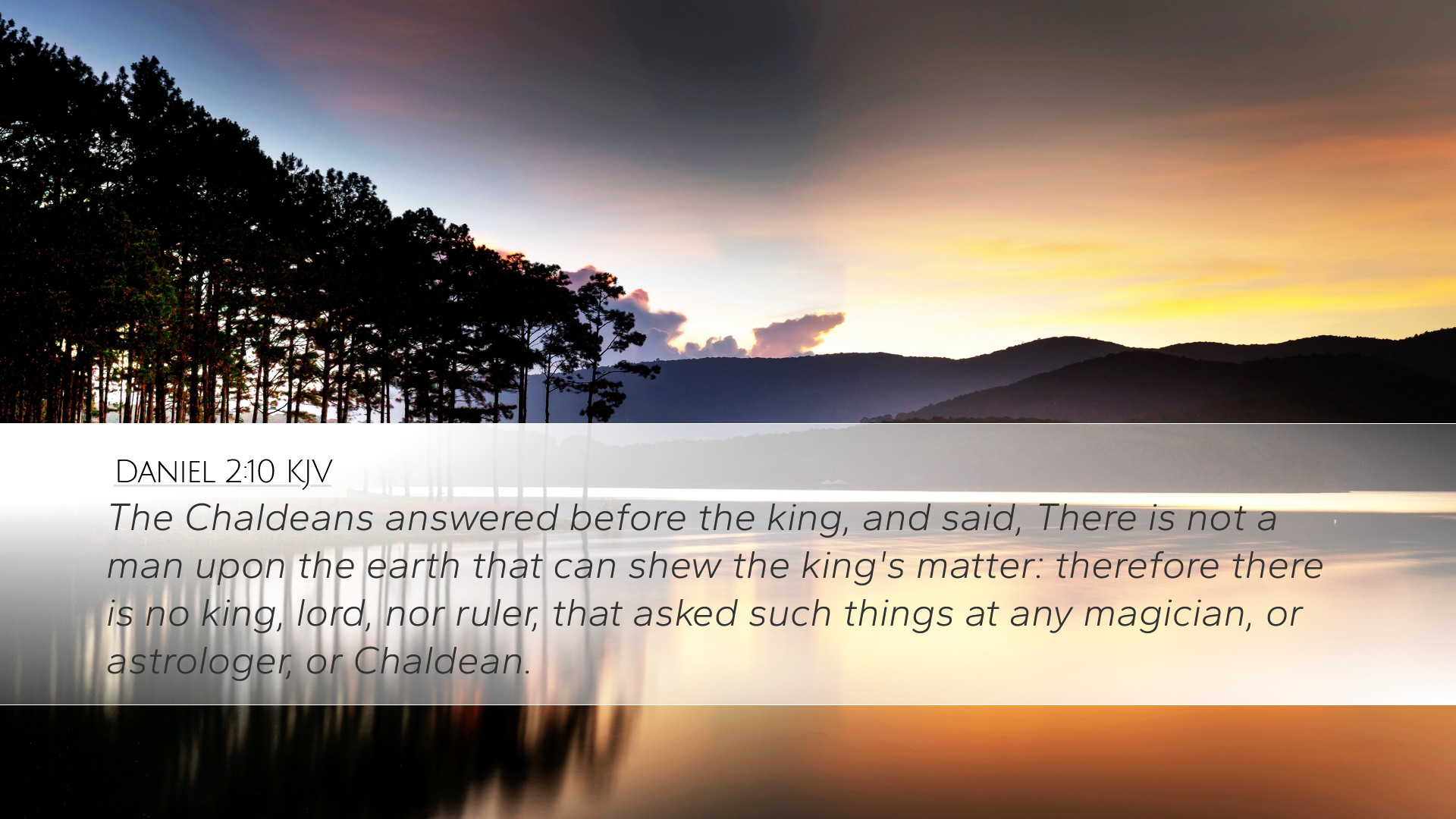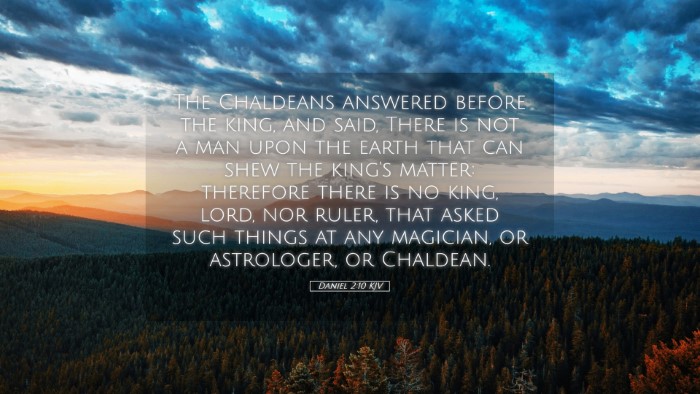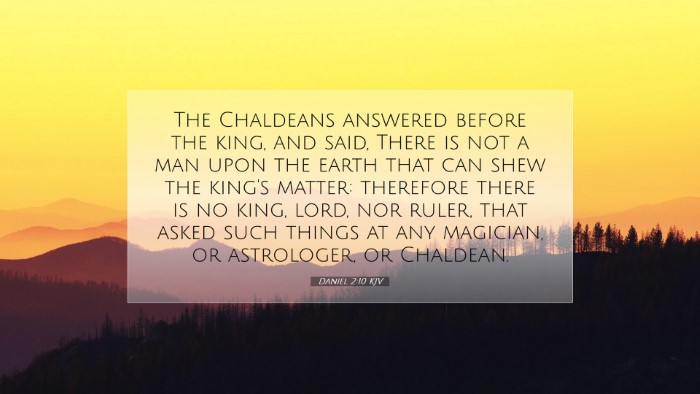Commentary on Daniel 2:10
Verse Reference: Daniel 2:10 (KJV) - "The Chaldeans answered before the king, and said, There is not a man upon the earth that can show the king’s matter: therefore there is no king, lord, nor ruler, that asked such things at any magician, or astrologer, or Chaldean."
Contextual Background
The Book of Daniel is a central text within the prophetic literature of the Old Testament. It highlights the sovereignty of God over earthly kingdoms and serves as a source of hope and encouragement for God's people during times of persecution and adversity.
Insights from Public Domain Commentaries
Matthew Henry's Commentary
Matthew Henry observes that the Chaldeans, being the wise men of Babylon, understood the enormity of King Nebuchadnezzar’s demand. They express their disbelief that any man on earth could reveal the king’s hidden dream and interpret it, emphasizing the extraordinary nature of the request. This situation demonstrates two critical points:
- The Limitations of Human Wisdom: Henry notes that the Chaldeans’ declaration reveals a profound truth about human limitations. Where earthly wisdom fails, only divine revelation can succeed. This positions God as the ultimate source of knowledge and interpretation.
- A Prophetic Context: He highlights the prophetic nature of this narrative. The Chaldeans, in their failure, inadvertently set the stage for a divine revelation through Daniel, who would later demonstrate both wisdom and the power of God.
Albert Barnes' Commentary
Albert Barnes emphasizes the Chaldeans’ assertion of their inability to meet the king’s request reflects their acknowledgment of their own constraints. Barnes presents several considerations:
- The Uniqueness of Nebuchadnezzar’s Request: The request was not typical; it required not only a recounting of a dream but also an interpretation without prior knowledge of the dream itself. This highlights the extraordinary situation that demanded a unique response.
- The Role of Divine Providence: He reflects on the sovereignty of God in human affairs, underscoring that the very impossibility of the situation was orchestrated to lead to God’s ultimate glory in the revelation through Daniel.
- The Nature of Spiritual Leadership: Barnes points out that true wisdom must align with divine guidance, suggesting that spiritual leaders of the time were clearly inadequate for the challenge posed by the king.
Adam Clarke’s Commentary
Adam Clarke provides a detailed analysis of the Chaldean response, discussing the implications of their words:
- Theological Implications: Clarke notes that the declaration of impossibility from the Chaldeans serves to highlight a foundational theological truth: the absolute sovereignty of God over all creation, including wisdom itself.
- Historical Considerations: He adds that this narrative showcases the historical context of Babylonian spirituality, where reliance on mystical knowledge and astrology was widespread, yet ultimately inadequate in the face of divine mysteries.
- Contrast with Daniel: Clarke contrasts the Chaldeans' inability with Daniel's subsequent success, presenting Daniel as a figure who not only possesses knowledge but also has an intimate relationship with God, who reveals hidden things to him.
Theological Implications
This verse invites reflection on the nature of wisdom and its limitations. Pastors, students, and scholars can draw several lessons:
- Reliance on God: True wisdom comes from humility and recognition of human limitations, emphasizing our dependence on divine revelation.
- God’s Sovereignty: The narrative reinforces the theme of God's control over worldly affairs, reminding us that in seemingly hopeless situations, God can provide clarity and guidance.
- The Role of Prayer and Discernment: Daniel's life illustrates the importance of prayer and seeking God in the face of uncertainty and fear.
Conclusion
Daniel 2:10 encapsulates a moment of despair among the Chaldeans which, when viewed through a theological lens, transforms into a profound opportunity for demonstrating God’s revelation through His servant Daniel. The insights gained from the commentaries of Henry, Barnes, and Clarke serve as rich resources for an understanding of this important text, centering on human limitations while elevating the divine authority of God.


